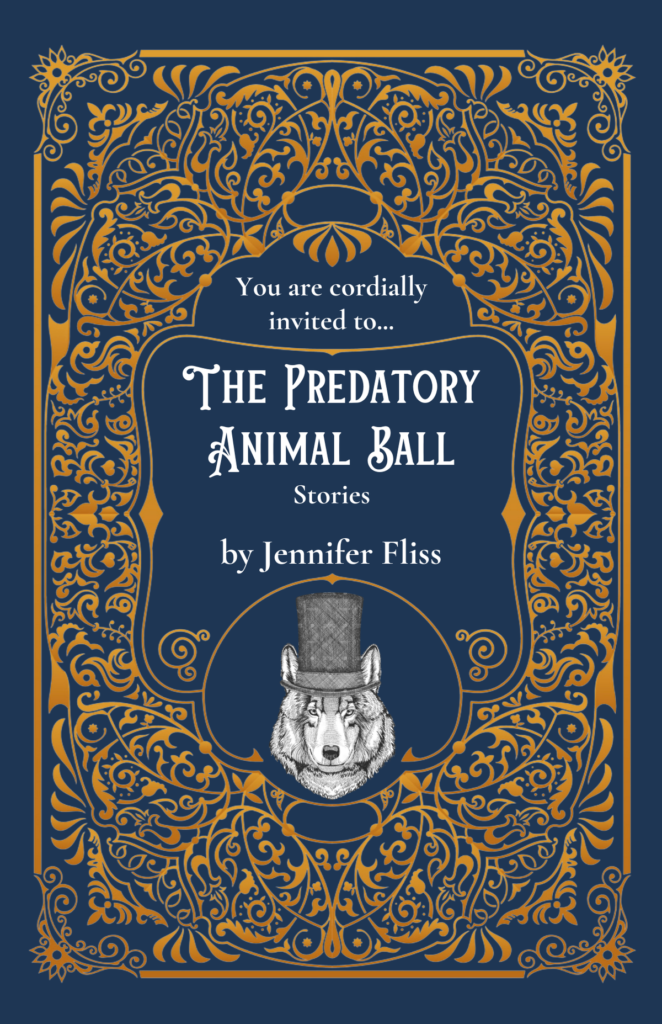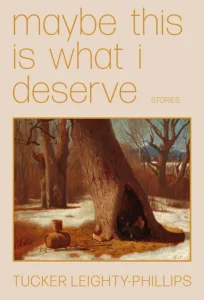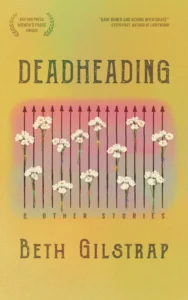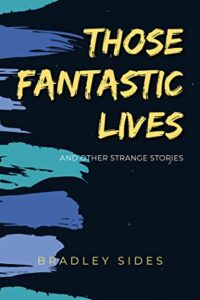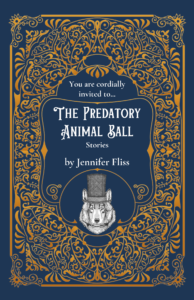Reviewed by Rebecca Pyle | May 2, 2022
Okay Donkey Press, December 2021
Paperback, 190 pages, $15.00
The shadow of war—our collective guilt, its drifting, numbing effect even many decades later on all our lives—seems to this reviewer what Jennifer Fliss is writing about in her collection of flash fiction pieces The Predatory Animal Ball. The conclusion drawn from the tales in this collection: we pay a price, post-conflict, for any conflict, win or lose.
Symbols of that still-being-paid price in Fliss’s short story collection are everywhere as in real life: how long has our recent nostalgia for mid-century modern furnishings and ugly 1950’s cars persisted in the U.S.? Gawky furniture and lava lamps and cars symbolizing American World War II guilt? In our desperate attempts to circumvent, dissemble, process those guilts (Hiroshima, in one generation; Vietnam, in the next) we are still pretending to marvel at splay-legged chairs and sofas which look as if they are about to rocket off into space (a clean new slate), worshipping a turquoise car with rocket-fins and Saturn-ring dashboard.
Today, we also look for escape via natural herbs, a way to try to defeat our military-industrial-complex guilt, and for our guilt about the chemical and industrial damage we have done to the earth. In Fliss’s short story “Dandelions” a mother is haunted by sleeplessness: her children cry out in their sleep, sleep-walk through the house without waking. Fliss writes:
You pick dandelions. Haven’t done the yard in months, so there are hundreds of the little infectious yellow bursts carpeting what you dare to call a lawn. Someone said once, or you read, you think, that dandelions can help you sleep. Under your pillow or crushed up and sprinkled on your sheets. Or something like that. You haven’t slept in weeks.
The hopeful mother sprinkles shredded dandelions through her bed but picking up her pillow troubles her: under her pillow, you eventually learn, is where her ex-husband used to hide his gun, leaning toward it each night before he slept, to check that the gun still remained where he placed it last.
In her story “The Mourning Light,” two sisters share a jail cell for two days, “wondering when oh when we would get out.” Then, they make a strange discovery:
There was no lock on our cell. No guards. This was not an imprisonment. We had done nothing wrong. My sister kept folding. The square of blanket grew smaller…we counted dead moths, but lost count at thirty three.
We didn’t leave.
In “Towels,” emblems of privilege are burgundy and white striped towels, which serve as tickets of admittance into a spa. But that almost flag-or currency-waving privilege seems to happen at a dead end, a literal last resort:
At the very exclusive club at the very end of the boulevard at the very end of the island, the towels were burgundy and white and striped. If you had a towel that was not burgundy and white striped, it was clear you did not belong.
In “Edward Scissorhands Takes Up Scrapbooking,” Edward is popular with scrapbookers, even traveling with scrapbookers through Europe. He’s nimble, scrapbooking about Europe with his scissor-hands, but must be wary of water, or blood from an injury: these can cause rust. “Despite the years of practice…when Edward Scissorhands slips and draws blood, it is always alarming…he becomes a stranger all over again.” Blood and water and rust, in this story, are symbols of grief, the past.
In “The Jews’ Things” there is yet more grief, a skiff, which enters a harbor, laden with suitcases of Jews’ belongings—Jews who lost their lives in terrible ways in the Holocaust. “No one was aboard the boat…the items looked as though they’d been decades at sea. Salt broke the locks which had been placed so diligently on suitcases.” News agencies are called, reporters arrive, “someone made an Anne Frank joke,” and all suitcases are loaded onto a truck, though no one seems to know where the suitcases are going. This story might be unmagical unrealism, or could have been drawn from a real event; in either case, it becomes, in visual-story form, a painting made of blues and golds and blacks, a surrealist traveling-island of grief.
Fliss finely, poetically, animates the inanimate. She writes, in the story “The Gargoyles Survey Their City,” about “the two last-of-their-kind” gargoyles, saying “…unlike the humans, they were unable to leave” / “they watched and they couldn’t do anything” / “wondered if their city would rise from the dead.” Time passes, and a demolition team arrives to take down the gargoyles: “And when they took their sledgehammer, first to the hopeful gargoyle, they did it from behind, mercifully, so it didn’t have to watch.”
The whole collection is Bleaker and Bleaker Street. Beginning with its very first story, “The Pigeon”: one pigeon, spotted on Third Avenue, has a needle protruding from one of its eyes. “Not a small needle, either…it swayed like a lightning rod,” Fliss writes. “His pigeon friends didn’t care.”
But when you reach the story “The Predatory Animal Ball,” namesake of this collection, you find an owl and a mouse, whose story changes the whole mindset of this book like a miracle medicine, or a flame in the dark, or a story suddenly explained musically. At its crisis point, a mouse is gripped in an owl’s talons as he flies very high above fields. The mouse knows this owl is the very same owl who recently carried off and killed her mate; she now knows exactly what her beloved companion’s last and terrible minutes felt like. Soon, she will be ripped to pieces, too. But instead, the owl, after setting her down in a field—”mumbles ‘not hungry.’” He quickly flies away.
So, somehow, the smile of fate—the surprise of survival—relief—is also what this book is about.
No lines in this collection of short, short pieces (morsels, other writers, strangely, in blurbs, have been calling Fliss’s stories) could express the constant, grinding, born-of-conscience twilight anxieties better than these lines by Fliss in “Some Sort of Apology”:
I wear the penitence around my neck like costume jewelry I once thought was beautiful. Sometimes people ask me if it’s real. I won’t ever tell. They say you can tell by the weight of the thing, I could wear this into shallow waves and drown myself.
I lost it. I wore it to a concert. It was loud. Crowded. Beer-soaked, hazy-something-like-love in the air like smoke from a wildfire—makes sunsets incredible, but poison fills your lungs as you gaze lazily upon the beauty.
I feel lighter now, but I wonder: is it around someone else’s neck, weighing them down?…
The funny thing is that, like a ghost limb, I can still feel it sometimes.
This is a pain-filled book, describing us, post-twentieth century, wherever we’re shifting the weights and gravities and awarenesses we’re carrying. Fliss’s book is not a prescription or a remedy, but a hopefulness, dressed in dark clothes, written almost with a doctor’s eye, which misses little.
ABOUT THE AUTHOR
Jennifer Fliss received her B.A. from the University of Wisconsin and a certificate in Literary Fiction from the University of Washington. She’s been nominated several times for both the Pushcart Prize and the Best of the Net and was selected for the 2019 Best Small Fictions anthology. Her stories and essays have appeared in The Rumpus, PANK, The Washington Post, F(r)iction, The Kitchn, and elsewhere. She was the 2018/2019 Pen Parentis fellow, a recipient of a 2019 Artist Trust GAP award, and is currently working on her first (and second) novel.
ABOUT THE REVIEWER
Rebecca Pyle is a writer and an artist. Rebecca Pyle’s stories have appeared in art/lit journals Gargoyle and The Wisconsin Review and Guesthouse and Fugue (forthcoming) and Pangyrus; poetry and essays and artwork are in others. She has been nominated once for the Pushcart Prize. She lives in the mountainous West. See rebeccapyleartist.com.


